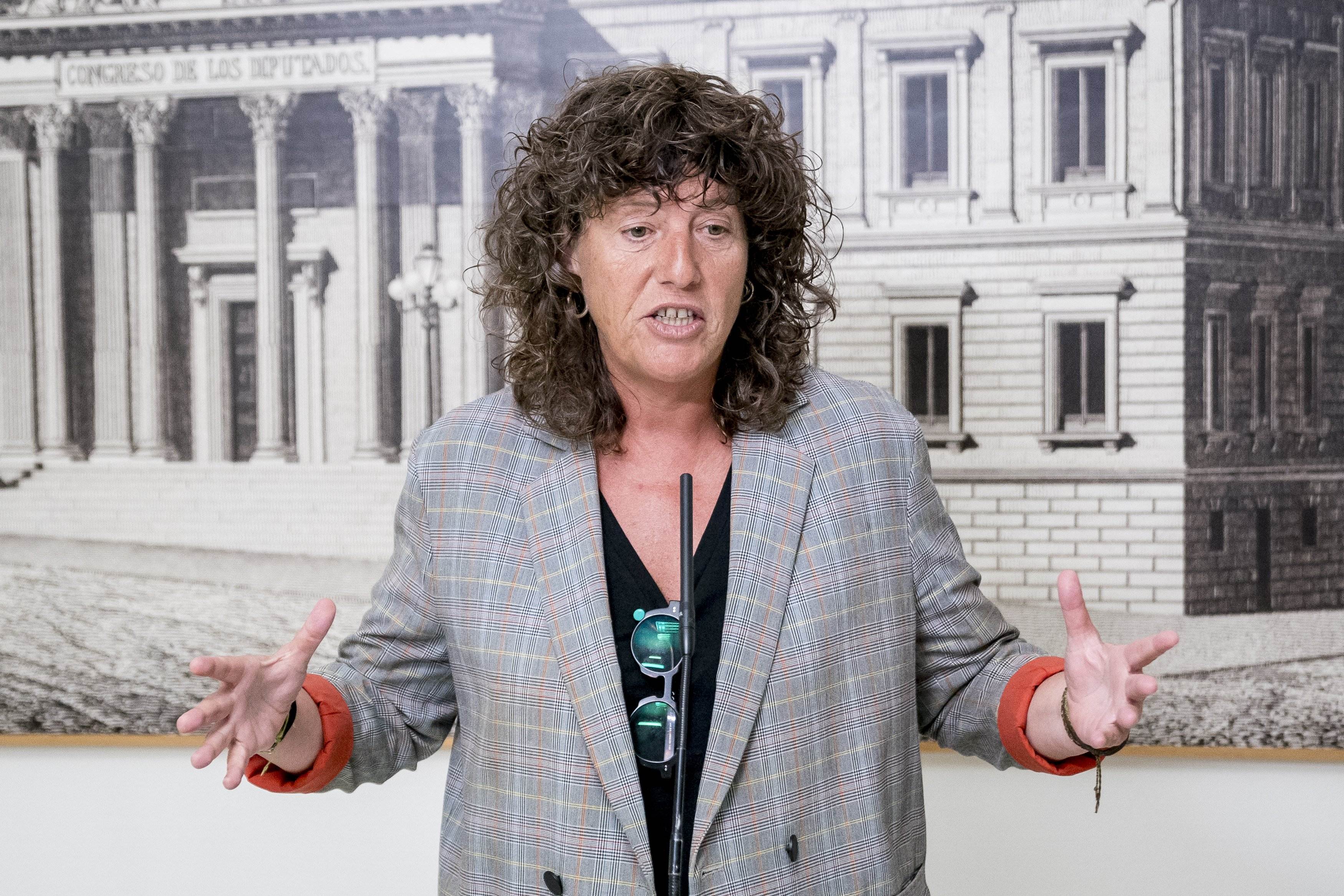Catalan Republican Left (ERC) deputy, Teresa Jordà, has explained this Friday in Madrid that for her party, the passing of an amnesty law is a red line, and without it, the seven ERC representatives in Congress will not vote for the re-investiture of acting Spanish prime minister Pedro Sánchez. In statements to RAC1 and Catalunya Ràdio, she reiterated that ERC sees the dejudicialization of the Catalan conflict, one of the items in the party's accord with the Socialists (PSOE) in return for its support in Thursday's Bureau votes, as entailing a law granting an amnesty to those prosecuted over the Catalan independence process: "Not only must they allow it to be heard in Congress, which is vital and so far has not happened, but they must also see that it goes forward". In 2021, all the Catalan pro-independence parties presented a proposal for an amnesty bill to Congress, and thanks to the Bureau votes of the PSOE, the PP and Vox, it was not even debated
In fact, with respect to the negotiation for the congressional Bureau, Jordà once again echoed the party's earlier statements that the votes on Thursday were only a first step. "It was essential to constitute the Bureau, and it could have been given a speaker from the PSOE or one from the most reactionary party, the PP," she said. Thus, supporting the Socialists in this first step is no guarantee of possible future ERC accords with Pedro Sánchez, and the Republican MP affirmed that it is "reckless" for the PSOE to take ERC's vote for granted.
Asked about the fact that on Thursday her party issued two communiqués, with, in the first one, an explicit mention of an Amnesty Law, but then a second version in which this point was eliminated, Jordà asserted that the two drafts meant the same thing. "We were demaning that the Spanish state commit itself to ending the repression in the general case against the Catalan independence movement, obviously using all legal and judicial means," she said.
ERC's relationship with Junts
Jordà insisted on the possibility of working with Together for Catalonia (Junts) in future negotiations, although she remarked that in the case of the negotiations over the Bureau votes, there was no coordination between the the pro-independence parties. The Republicans assert that it is their priority to form a common front with Junts to articulate the negotiations for the investiture: "I am convinced that it makes a lot of sense to work together and it is what the public would understand". In addition, she added: "Now we have pro-independence colleagues in Congress who, a priori, want to negotiate and move forward, for the country and especially for our cause."
She insisted that the path being followed by the Republican Left goes through negotiation and regretted that perhaps they have not communicated their strategy as well as they could. "I think that part of our work has been downplayed and, in part, it is our fault because we may not have explained ourselves well," she acknowledged. Asked if, in view of the negotiations for a possible investiture, she trusts the promises made by the Socialists, she said: "It is up to the PSOE, if it wants our votes it will have to attend to our demands".
2021 amnesty bill was not even debated
In March 2021, the Catalan pro-independence parties ERC, Junts, the CUP and the PDeCaT presented Congress with a proposal for an Amnesty Law. The first article of the text outlines its scope: “All acts with a political intentionality, whatever their outcome, which are classified as crimes or as conduct denoting administrative liability, carried out since 1st January, 2013, and until the entry into force of this law are granted an amnesty." And it further defined the "political intentionality" that it mentioned as "any action linked to the democratic struggle for the self-determination of Catalonia". The result: a pincer action by the PSOE, the PP and Vox prevented it from moving forward, based on its alleged unconstitutionality. Unidas Podemos, alone in the Bureau, voted in favour of the bill having even the minimum parliamentary hearing.

